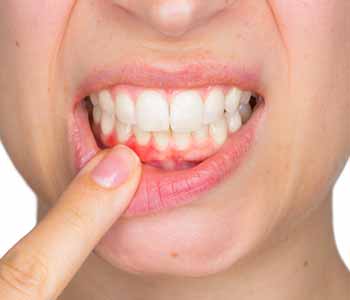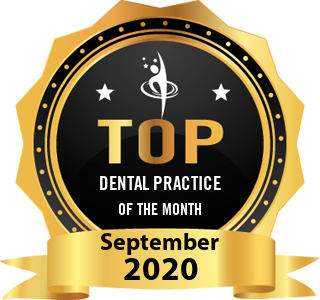Wichita, KS dental practice explains early signs of gum disease and treatments by stages
By Dr. David Koepsel
Chances are, you’ve either had some form of gum disease or know someone in Wichita, KS who has it. Nearly 75 percent of American adults suffer from gum disease at some point in their life, even if they never knew they had it. Gum disease comes in multiple forms and can affect both oral health and overall health. When gum disease goes untreated, it can increase the risk of heart disease, diabetes, stroke, and even certain types of cancer. Knowing the early signs of gum disease can make a significant difference in treatment outcomes. At East Wichita Dentist, we take the time to educate our patients on the risks and symptoms of early gum disease (gingivitis) as well as advanced gum disease (periodontitis). In this article, we’ll dive into what symptoms you should look out for and your treatment options for the various stages of gum disease.
Gingivitis
Gingivitis is the first stage of gum disease and the most well-known. Gingivitis occurs when there is plaque accumulation on the teeth and gums. Healthy gum tissue should appear pink, however, when gingivitis occurs, over time, the bacteria in the plaque release acid that can cause tooth sensitivity and red, inflamed gums. If gingivitis is left untreated, it will become periodontitis, which is the advanced form of gum disease. Luckily, gingivitis is a reversible condition, since the bone has not yet been affected. Once the plaque and acid that irritate the gums are removed (usually through a professional deep cleaning and improvement in home oral hygiene), healthy gum tissue is restored.
Early signs of gingivitis
- Red, swollen gums
- Gums that bleed when brushing or flossing
- Separation of the gums from the teeth
- Chronic bad breath
- Increased sensitivity in teeth
- Change in fit of dental restorations
New Patients - (316) 215-7152 | Existing Patients - (316) 686-7395
Or
Request an Appointment
Periodontitis
Gingivitis is considered to have advanced to periodontitis once it has reached the bones and fibers that hold the teeth in place. Pockets will begin to form between the teeth and gums and will continue to deepen, allowing dangerous plaque and bacteria to become trapped. Over time, the plaque and bacteria will destroy the bone support and connective tissue, gums will recede, and teeth will begin to loosen, shift, and possibly fall out.
Risk factors for gum disease
While anyone can develop gum disease, these factors can put individuals at an increased risk:
- Smoking or tobacco use
- Crooked teeth
- Genetic factors
- Diabetes
- Certain medications
- Hormonal changes (puberty, pregnancy, menopause)
Gum Disease Treatment
If your gum disease is still in the gingivitis stage, treatment will likely be a deep cleaning followed by specific instructions for improving oral hygiene at home. This means brushing teeth at least twice each day and flossing once each day. Patients may also be put on a schedule of more frequent dental exams and cleanings until teeth and gums look healthy again.
When gum disease has advanced to periodontitis, treatment becomes more involved. Medications may need to be taken to eliminate infection. Laser treatment can also be used to remove the infection and bacteria from the periodontal pockets. If patients have experienced bone, tissue, or tooth loss procedures such as a gum and bone grafts may be necessary. Many patients will also require restorations such as dental implants to replace lost teeth.
Preventing gum disease
Gum disease is almost entirely preventable when patients take the time to practice good oral hygiene habits. Brushing and flossing regularly, maintaining professional exams and cleanings, and making lifestyle changes such as quitting smoking and improving nutrition can all lower the risk of gum disease.

Once gum disease develops, professional intervention from a skilled dental team is important to stopping the progression of the disease. At East Wichita Dentist, our number one priority is helping our patients enjoy oral health. During every examination we check for the early signs of gum disease and we work with patients to develop a plan to keep teeth and gums healthy.
If you are experiencing some of the signs of gum disease, or simply want a dental team that cares about your wellbeing, we invite you to call our office today at (316) 215-7152 to schedule an appointment. We’re ready to be your partner in dental health.

Our Special Offers
Office Hours
Tuesday
Wednesday
Thursday
Friday
8:00AM-6:00PM
8:00AM-6:00PM
8:00AM-6:00PM
Closed
-
Rating: 5

Dr. David Koepsel
Reviewed by Marie K.
Such an amazing dental office! The staff is so nice and welcoming. I felt right at home. They used sedation dentistry on me and it took all the fear from me and it didn't even hurt. I have never met a dental office that is so easy to talk to! Love them





